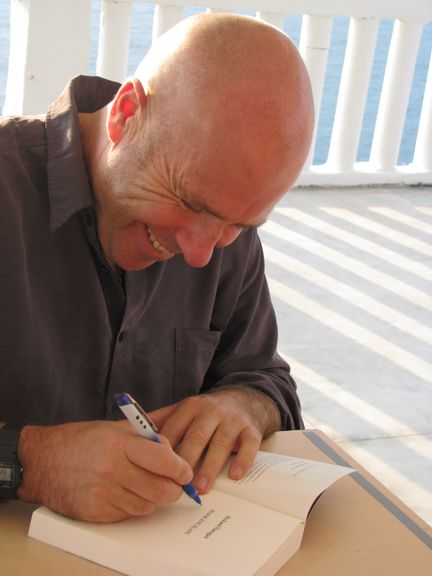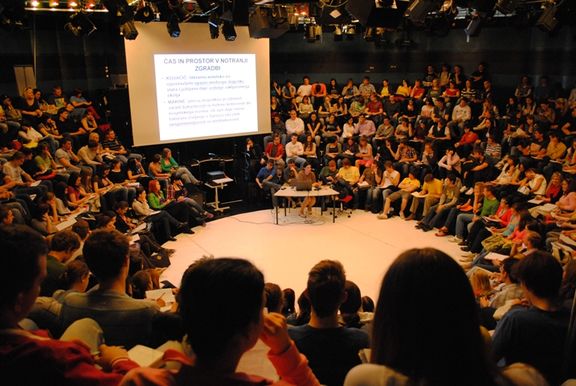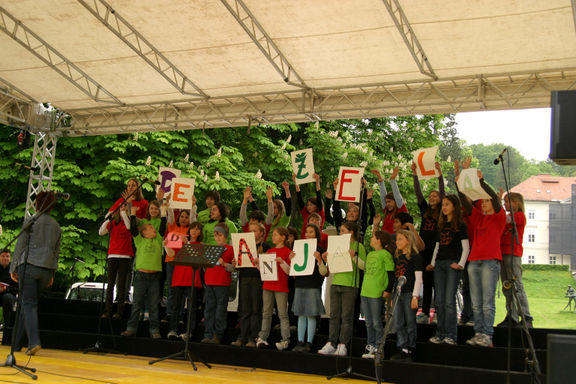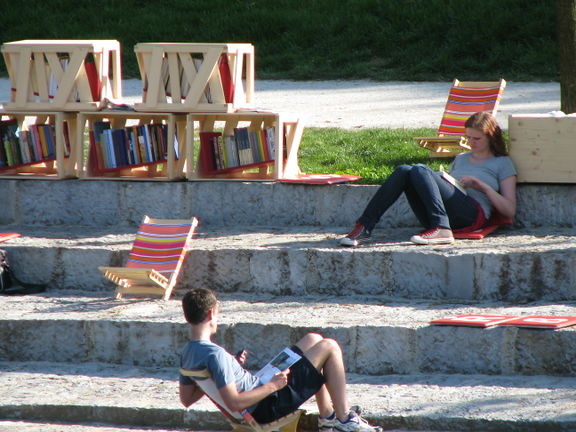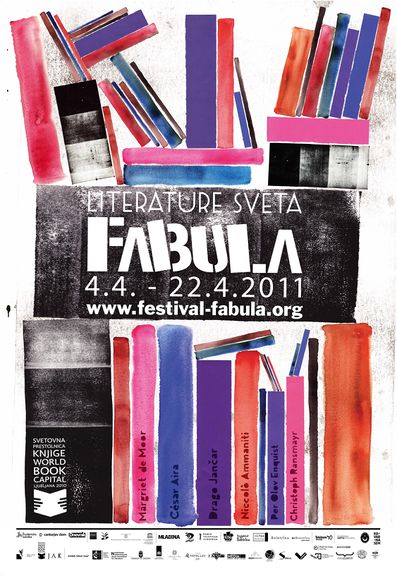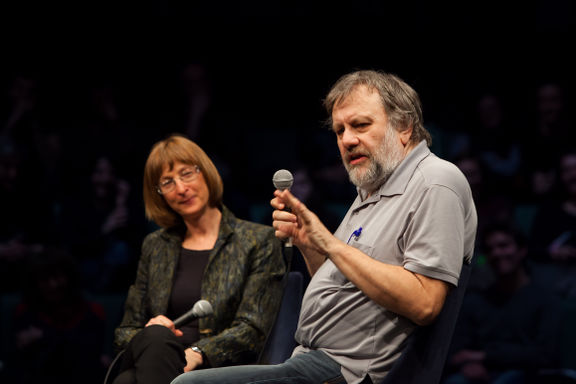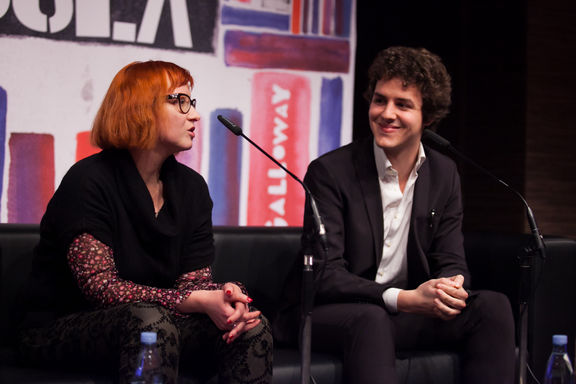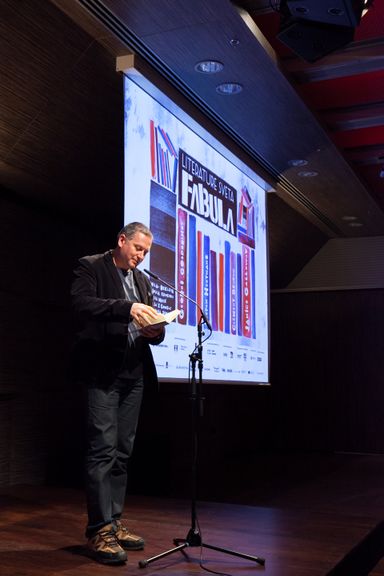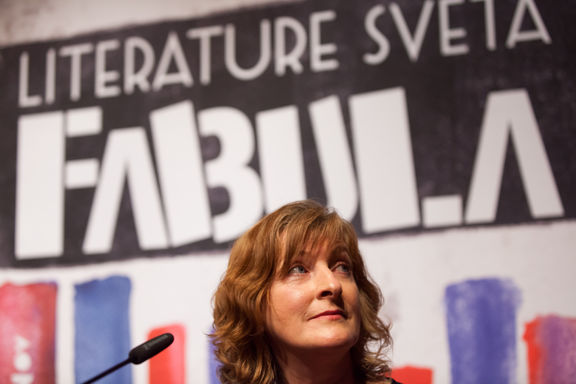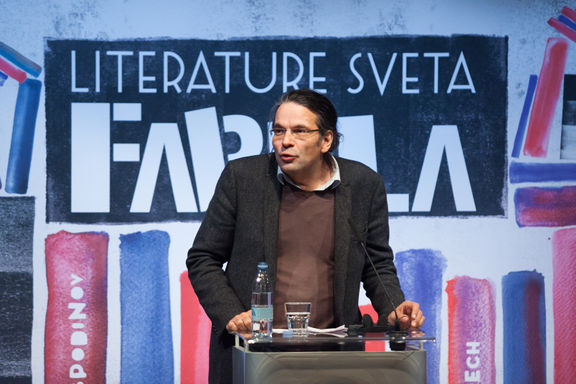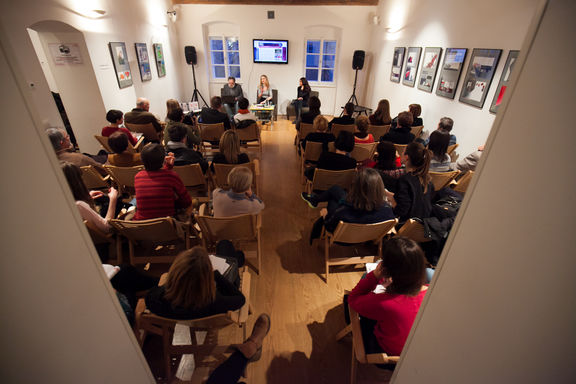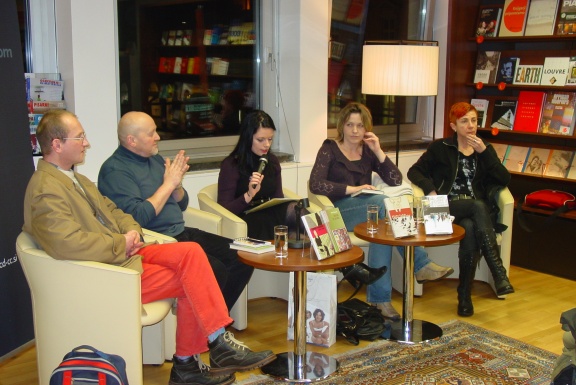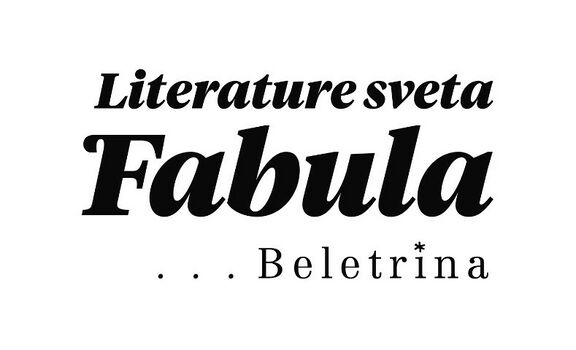Difference between revisions of "World Literatures - Fabula Festival"
| Line 39: | Line 39: | ||
[[Fabula Festival]] ‒ Literature of the World is the biggest and most visited literary festival in Slovenia and the wider region. Produced by the [[Beletrina Publishing Institute]] in collaboration with [[Cankarjev dom, Cultural and Congress Centre]] the festival brings together world-class authors through well-considered curatorship. Each year, the festival aims to select five distinguished writers, while the Fabula Hub devotes attention to promising, up-and-coming authors. In addition to hosting renowned writers and establishing live contact between international literature and Slovenian audiences, translated works of the chosen five are also published as part of the festival. The festival also features a theoretical focus addressing a relevant social issue every year - raising topical socio-critical issues it addresses contemporary challenges. | [[Fabula Festival]] ‒ Literature of the World is the biggest and most visited literary festival in Slovenia and the wider region. Produced by the [[Beletrina Publishing Institute]] in collaboration with [[Cankarjev dom, Cultural and Congress Centre]] the festival brings together world-class authors through well-considered curatorship. Each year, the festival aims to select five distinguished writers, while the Fabula Hub devotes attention to promising, up-and-coming authors. In addition to hosting renowned writers and establishing live contact between international literature and Slovenian audiences, translated works of the chosen five are also published as part of the festival. The festival also features a theoretical focus addressing a relevant social issue every year - raising topical socio-critical issues it addresses contemporary challenges. | ||
}} | }} | ||
| + | |||
| + | {{Image|4 Fabula - Literature of the World 2022 Mieko Kawakami.jpg}} | ||
== Background == | == Background == | ||
| Line 49: | Line 51: | ||
{{Image|2 Fabula - Literature of the World 2023 Fabula Hub - Bernardine Evaristo.jpg}} | {{Image|2 Fabula - Literature of the World 2023 Fabula Hub - Bernardine Evaristo.jpg}} | ||
| + | |||
| + | {{Image|6 Fabula - Literature of the World 2021 Brglesita exhibition.jpg}} | ||
{{Image|3 Fabula - Literature of the World 2022 Fabula Fotelj.jpg}} | {{Image|3 Fabula - Literature of the World 2022 Fabula Fotelj.jpg}} | ||
| Line 54: | Line 58: | ||
== See also == | == See also == | ||
*[[Beletrina Publishing Institute]] | *[[Beletrina Publishing Institute]] | ||
| − | |||
== External links == | == External links == | ||
*[http://www.festival-fabula.org Fabula Festival website] | *[http://www.festival-fabula.org Fabula Festival website] | ||
| − | |||
Revision as of 13:07, 17 January 2024
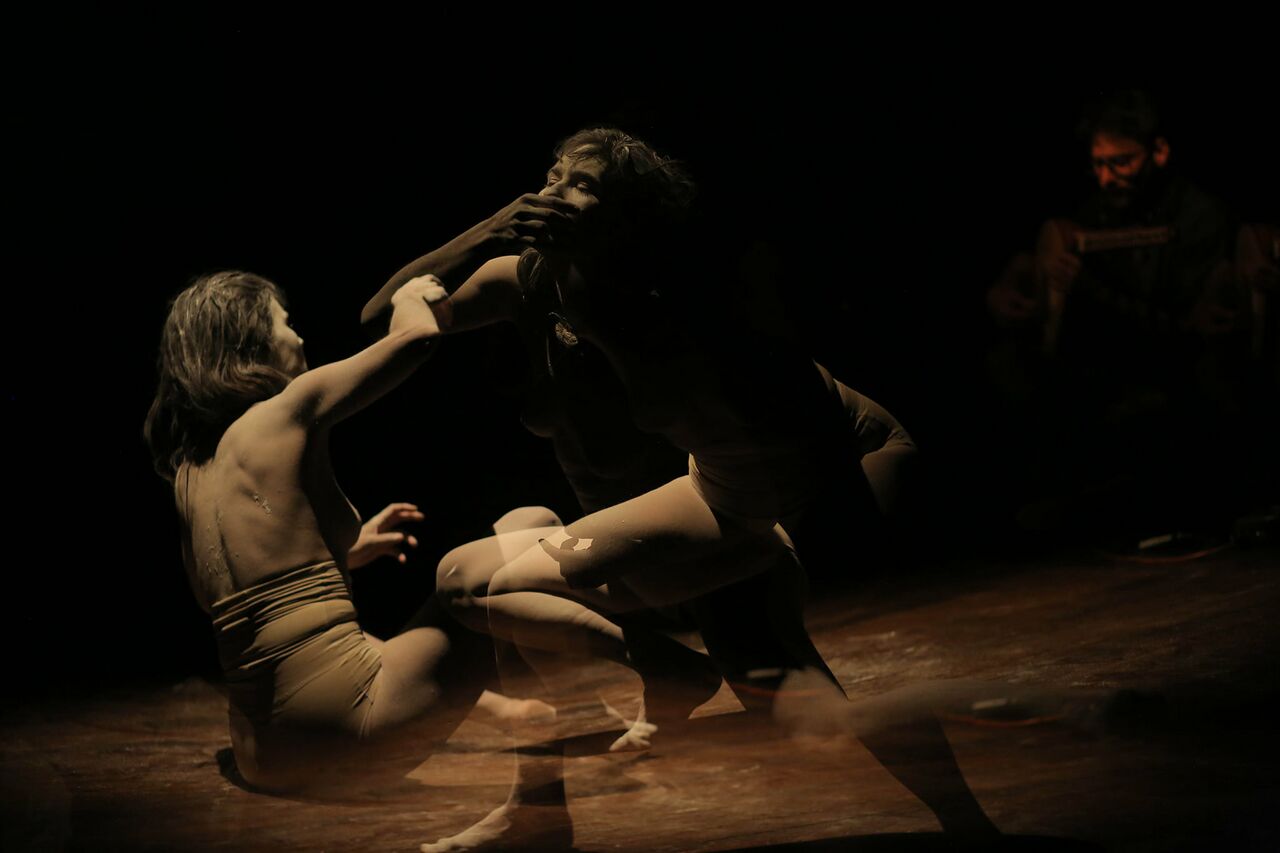 The virtual Q&A between Mieko Kawakami and Nagisa Moritoki Škof that was accompanied by a butoh performance by Darinka Pillari took place at the Cankarjev dom Club in 2022. It presented Summer Stories, the latest novel by Japanese author Mieko Kawakami - a portrait of contemporary womanhood in Japan.
The virtual Q&A between Mieko Kawakami and Nagisa Moritoki Škof that was accompanied by a butoh performance by Darinka Pillari took place at the Cankarjev dom Club in 2022. It presented Summer Stories, the latest novel by Japanese author Mieko Kawakami - a portrait of contemporary womanhood in Japan.
Background
Founded in 2003, Fabula Festival has hosted many modern classics: Herta Müller, Irvin Welsh, Jonathan Franz, Hanif Kureishi, David Grossman, Janice Galloway, Richard Flanagan, Taiye Selasi, Tatiana Tolstoy, Eric Vuillard, Rachel Cusk, Deborah Levy, Jokha Alharthi, Bernhard Schlink, Vladimir Sorokin, Chimamanda Ngozi Adichie and many others. The festival’s concept has evolved and improved throughout the years and is now based on a curator’s pick of five authors, who are already considered literary classics or who have made a significant mark on world literature in recent years with their work.
 The virtual Q&A between Mieko Kawakami and Nagisa Moritoki Škof that was accompanied by a butoh performance by Darinka Pillari took place at the Cankarjev dom Club in 2022. It presented Summer Stories, the latest novel by Japanese author Mieko Kawakami - a portrait of contemporary womanhood in Japan.
The virtual Q&A between Mieko Kawakami and Nagisa Moritoki Škof that was accompanied by a butoh performance by Darinka Pillari took place at the Cankarjev dom Club in 2022. It presented Summer Stories, the latest novel by Japanese author Mieko Kawakami - a portrait of contemporary womanhood in Japan.
Accompanying Programme
In addition to the literary part, the festival also has a theoretical focus, which each year questions a new relevant social topic. So far, Slavoj Žižek, Terry Eagleton, Chantal Mouffe, Eva Illouz, Jean-Claude Milner, Patrick Boucheron, Umberto Galimberti, Chimamanda Ngozi Adichieand others have been guests in the theoretical focus. Fabula Festival is also distinguished by an extremely varied accompanying program, which is intended for all generations of readers and brings everything from children's and youth programs (Young Fabula), interactive literary installations to public space (Fabula polis), collaborations with Slovenian publishers and bookstores (Fabula selection), genre intertwining between literature and theater and other art genres (Fabula outside literature), to projects establishing the festival as an incubator of new literary ideas and future literary trends (Fabula Hub), thus strengthening the space of the wider literary and social community.
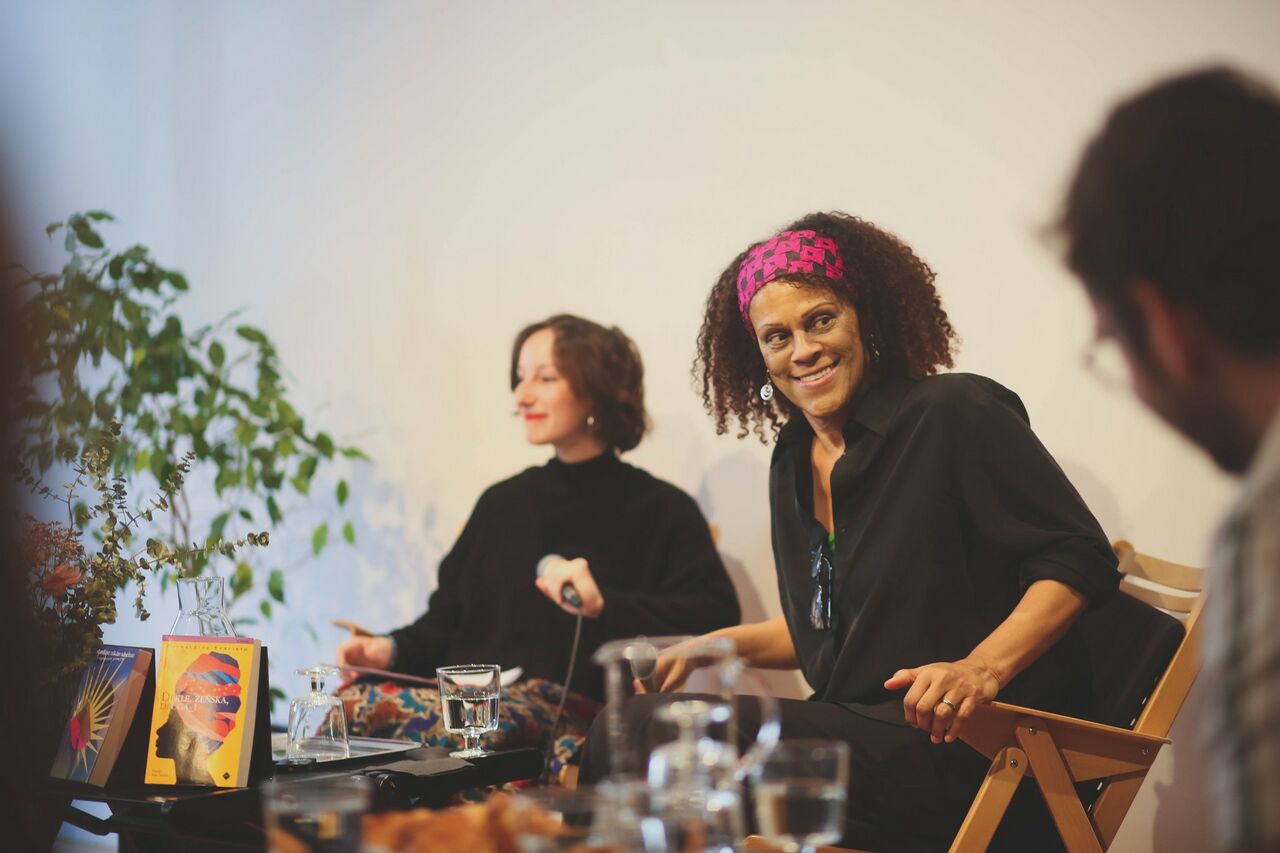 The award-winning British writer, academic and long-time fighter for greater inclusivity in literature Bernardine Evaristo joined the 2023 edition of the festival at the so-called Itn's literary breakfast (hosted by Fabula Festival and Itn.). Photo: Nina Pernat
The award-winning British writer, academic and long-time fighter for greater inclusivity in literature Bernardine Evaristo joined the 2023 edition of the festival at the so-called Itn's literary breakfast (hosted by Fabula Festival and Itn.). Photo: Nina Pernat
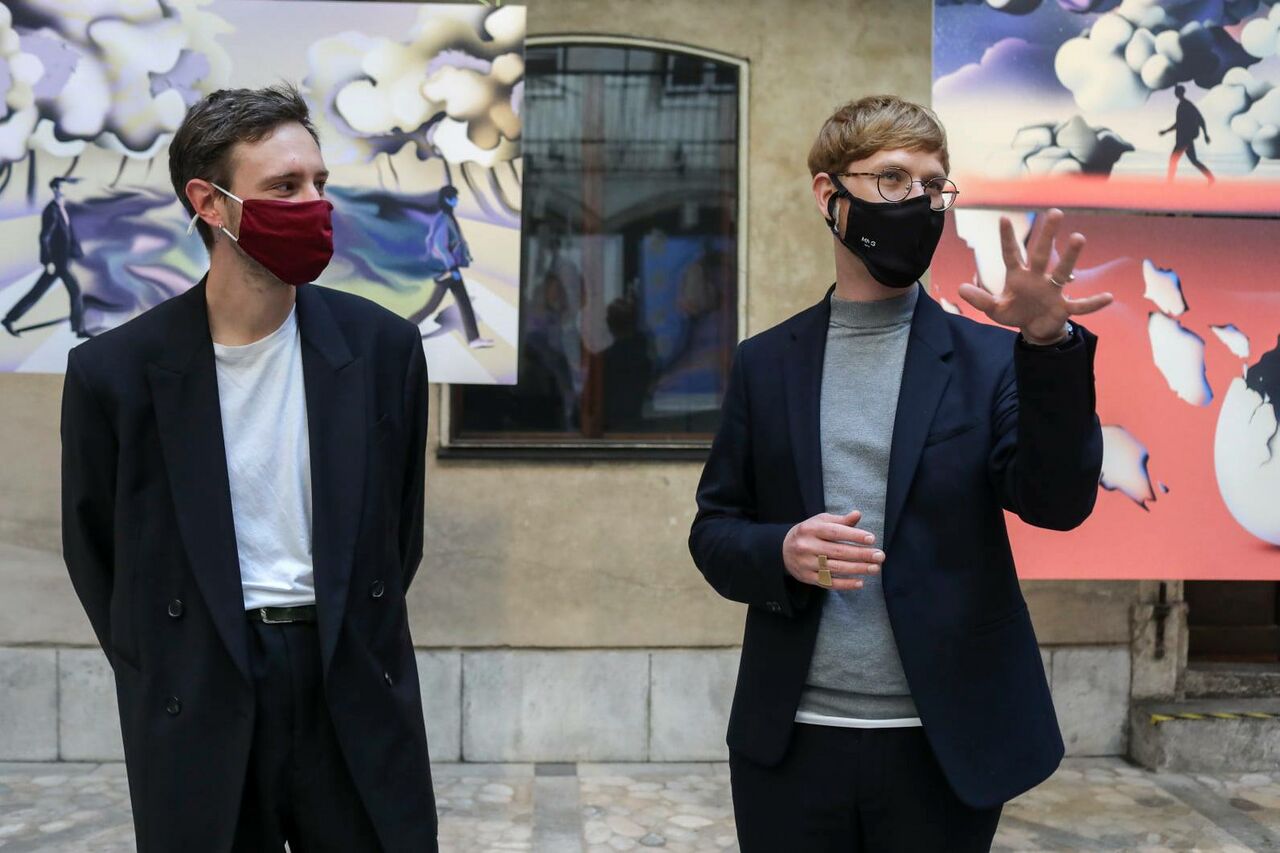 The Fabula book collection of 2021 lives through the illustrations of the designer and illustrator, Jure Brglez aka Brglesita, which were presented at the exhibition at the City Hall Atria in Ljubljana. Artist is accompanied by the artistic director of the festival Aljaž Koprivnikar. Photo: Jaka Gaser
The Fabula book collection of 2021 lives through the illustrations of the designer and illustrator, Jure Brglez aka Brglesita, which were presented at the exhibition at the City Hall Atria in Ljubljana. Artist is accompanied by the artistic director of the festival Aljaž Koprivnikar. Photo: Jaka Gaser
 The artistic director of the festival Aljaž Koprivnikar at the home of the senior citizens DSO Fužine where he presented FabulaFotelj, special project of the 2022 edition of the festival, an interactive and movable armchair, equipped with audio books that was created together with prostoRož.
The artistic director of the festival Aljaž Koprivnikar at the home of the senior citizens DSO Fužine where he presented FabulaFotelj, special project of the 2022 edition of the festival, an interactive and movable armchair, equipped with audio books that was created together with prostoRož.
See also
External links




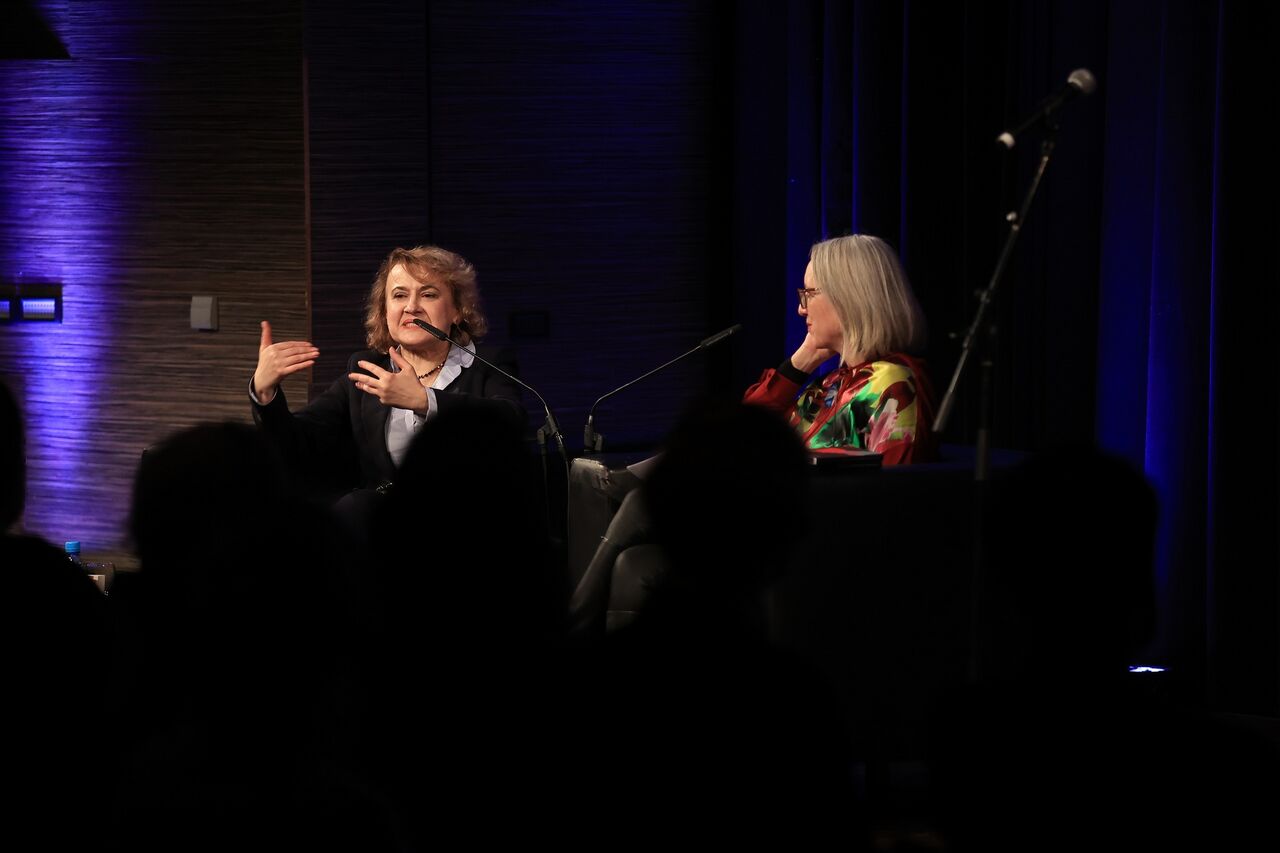
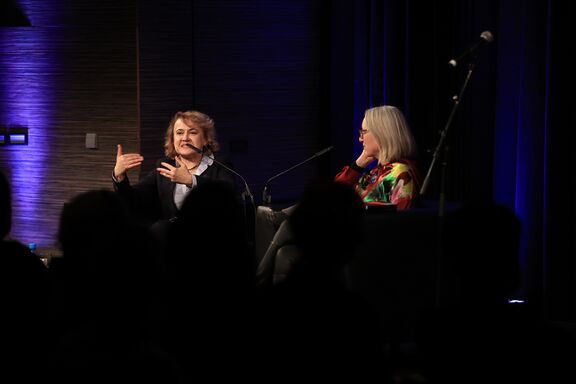
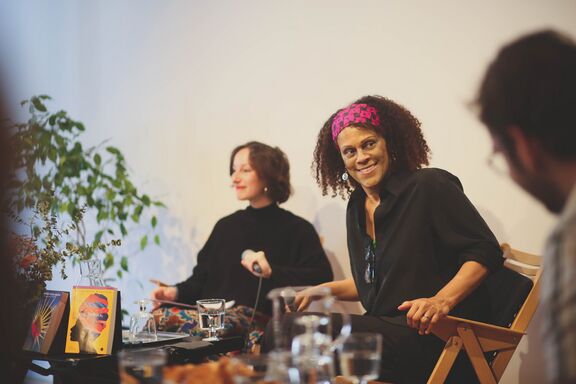
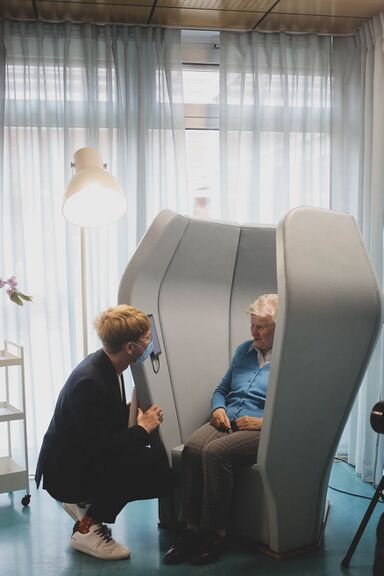
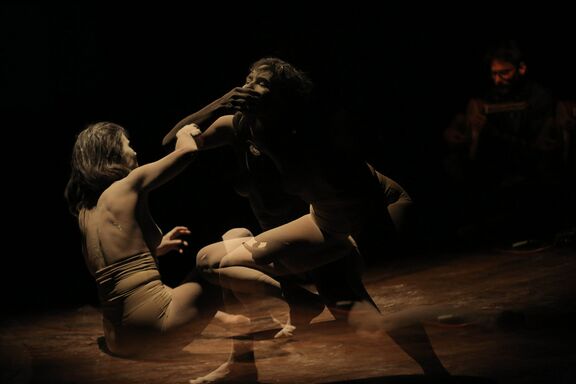
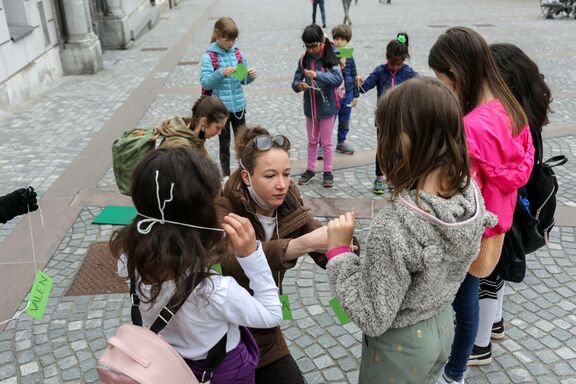
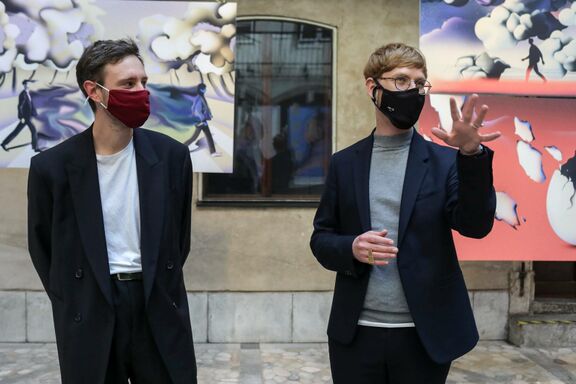
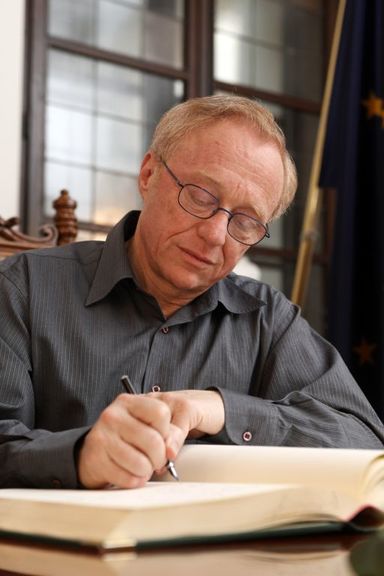
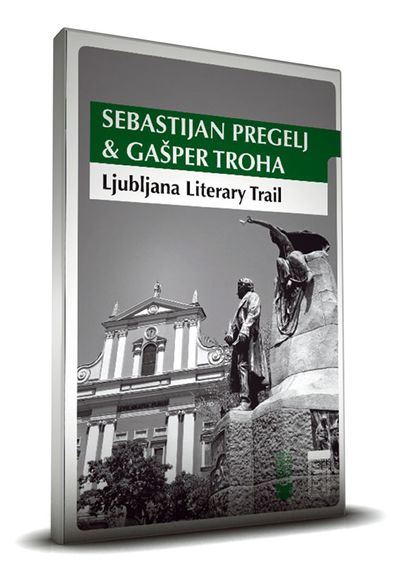
![Niccolò Ammaniti's Jaz in ti [You and Me] book cover, 2010](/images/thumb/7/74/Fabula_Festival_-_11.jpg/455px-Fabula_Festival_-_11.jpg)
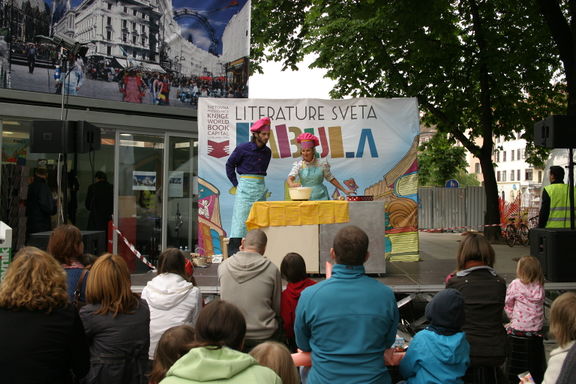
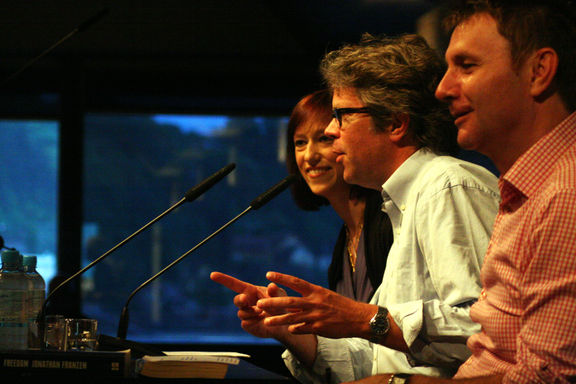
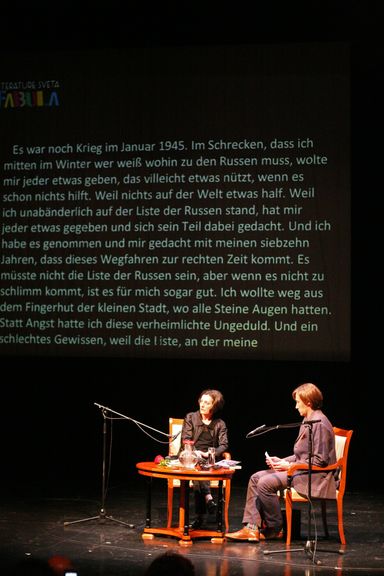
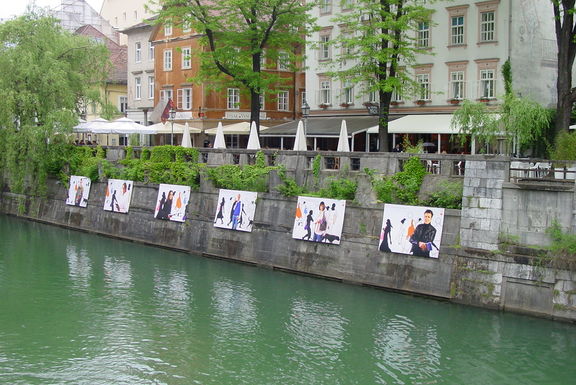
![Prešeren's Coat, by Andreja Brulc, art installation using passages from the poet's longest poem Krst pri Savici[Baptism at Savica] on a new robe dressing Prešeren's monument, World Literatures - Fabula Festival, 2010](/images/thumb/6/64/Fabula_Festival_2010_Preseren%27s_Coat_Photo_Mojca_Pisek.jpg/382px-Fabula_Festival_2010_Preseren%27s_Coat_Photo_Mojca_Pisek.jpg)
